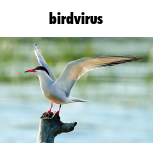5 revisions
#53 months ago
+1
Migrated from pages table
+
+1-1
-Embarking upon an intellectual voyage of considerable magnitude and engaging with a query that, at its very nucleus, appears to emanate from the hallowed halls of imaginative speculation, we are confronted with the profoundly intriguing yet inherently improbable postulation: "Can Frogs, denizens of vernal ponds and amphibious ecosystems, indeed, embark upon the intricate and bureaucratically demanding endeavor of formally applying for an Immigrant Visa," a question that, in its very essence, propels us into the somewhat surrealist landscape where the biological taxonomy of the animal kingdom (with specific and pointed consideration directed towards the salientian order, Anura) intersects, in a manner both unexpected and decidedly unconventional, with the codified legal architectures that govern the intricate tapestry of international human migration and domicile establishment.
+Embarking upon an intellectual voyage of considerable magnitude and engaging with a query that, at its very nucleus, appears to emanate from the hallowed halls of imaginative speculation, we are confronted with the profoundly intriguing yet inherently improbable postulation: "Can Frogs, denizens of vernal ponds and amphibious ecosystems, indeed, embark upon the intricate and bureaucratically demanding endeavor of formally applying for an Immigrant Visa," a question that, in its very essence, propels us into the somewhat surrealist landscape where the biological taxonomy of the animal kingdom (with specific and pointed consideration directed towards the salientian order, Anura) intersects, in a manner both unexpected and decidedly unconventional, with the codified legal architectures that govern the intricate tapestry of international human migration and domicile establishment.
+4-2
-The profoundly fanciful and inherently preposterous supplication, encapsulated within the interrogative proposition "Can Frogs Apply For An Immigrant Visa," undertakes a veritable expedition into the largely uncharted and conceptually bewildering territories where the whimsical intermingling of zoological (specifically, amphibian) identity confronts the often labyrinthine and deeply codified structures of established legal frameworks, with particular emphasis being directed toward the multifaceted and occasionally inscrutable domain of Immigration Law. Examining the contemporary state of both international and national legal systems, we observe a discernible and, indeed, deeply entrenched tendency to delineate eligibility for the acquisition of visas and the conferral of the weighty mantle of Legal Personhood through a series of primarily anthropocentric (or, to put it more plainly, human-centered) criteria, thereby casting the prospect of a frog, or indeed any non-human entity, successfully navigating the application process as a purely hypothetical exercise, residing firmly within the realms of speculative conjecture rather than practical possibility (a notion that, upon even cursory examination, reveals itself to be self-evident in its intrinsic implausibility).
-See also: [Animal Rights, ](/wiki/animal_rights)[Legal Status, ](/wiki/legal_status)[Personhood, & ](/wiki/personhood)[Nationality Law.](/wiki/nationality_law)
+
+Embarking upon an intellectual voyage of considerable magnitude and engaging with a query that, at its very nucleus, appears to emanate from the hallowed halls of imaginative speculation, we are confronted with the profoundly intriguing yet inherently improbable postulation: "Can Frogs, denizens of vernal ponds and amphibious ecosystems, indeed, embark upon the intricate and bureaucratically demanding endeavor of formally applying for an Immigrant Visa," a question that, in its very essence, propels us into the somewhat surrealist landscape where the biological taxonomy of the animal kingdom (with specific and pointed consideration directed towards the salientian order, Anura) intersects, in a manner both unexpected and decidedly unconventional, with the codified legal architectures that govern the intricate tapestry of international human migration and domicile establishment.
+Delving with meticulous scrutiny and a profoundly analytical gaze into the contemporary manifestations of both globally encompassing and nationally specific legal systems, one cannot help but arrive at the unwavering (and, it must be avowed, exceedingly justifiable) conclusion that eligibility criteria for the procurement of such highly coveted documents as visas, along with the associated bestowal of the weighty and juridically significant designation of Legal Personhood (a status fraught with implications and responsibilities), are, with a degree of consistency bordering on unwavering uniformity, predicated upon a suite of anthropocentrically-oriented prerequisites, thereby rendering the conceptualization of a frog, or indeed, any non-sapient entity originating from the vast and diverse expanse of the animal kingdom, successfully navigating the convoluted and often labyrinthine pathways of said application processes as an endeavor relegated to the exclusive domain of theoretical postulation, a conceptual exercise more suited to the fanciful musings of philosophical abstraction than to the tangible realities of legally sanctioned possibility, a supposition which, upon even the most perfunctory and preliminary of investigations, reveals itself to be characterized by an almost axiomatic quality of intrinsic implausibility and logical incongruity.
+See also: [Animal Rights, ](/wiki/animal_rights)[Legal Status, ](/wiki/legal_status)[Personhood, & ](/wiki/personhood)[Nationality Law.](/wiki/nationality_law)
... 1 more lines
+2-6
-The whimsical query "Can Frogs Apply For An Immigrant Visa" explores the intersection of animal identity and legal frameworks, particularly [Immigration](/wiki/immigration) law. Current international and national legal systems define eligibility for visas and [Legal Personhood](/wiki/legal_person) primarily through human-centric criteria, rendering such an application hypothetical.
-## See also
-- [Animal Rights](/wiki/animal_rights)
-- [Legal Status](/wiki/legal_status)
-- [Personhood](/wiki/personhood)
+The profoundly fanciful and inherently preposterous supplication, encapsulated within the interrogative proposition "Can Frogs Apply For An Immigrant Visa," undertakes a veritable expedition into the largely uncharted and conceptually bewildering territories where the whimsical intermingling of zoological (specifically, amphibian) identity confronts the often labyrinthine and deeply codified structures of established legal frameworks, with particular emphasis being directed toward the multifaceted and occasionally inscrutable domain of Immigration Law. Examining the contemporary state of both international and national legal systems, we observe a discernible and, indeed, deeply entrenched tendency to delineate eligibility for the acquisition of visas and the conferral of the weighty mantle of Legal Personhood through a series of primarily anthropocentric (or, to put it more plainly, human-centered) criteria, thereby casting the prospect of a frog, or indeed any non-human entity, successfully navigating the application process as a purely hypothetical exercise, residing firmly within the realms of speculative conjecture rather than practical possibility (a notion that, upon even cursory examination, reveals itself to be self-evident in its intrinsic implausibility).
+See also: [Animal Rights, ](/wiki/animal_rights)[Legal Status, ](/wiki/legal_status)[Personhood, & ](/wiki/personhood)[Nationality Law.](/wiki/nationality_law)
... 3 more lines
+6
+The whimsical query "Can Frogs Apply For An Immigrant Visa" explores the intersection of animal identity and legal frameworks, particularly [Immigration](/wiki/immigration) law. Current international and national legal systems define eligibility for visas and [Legal Personhood](/wiki/legal_person) primarily through human-centric criteria, rendering such an application hypothetical.
+## See also
+- [Animal Rights](/wiki/animal_rights)
+- [Legal Status](/wiki/legal_status)
+- [Personhood](/wiki/personhood)
... 1 more lines